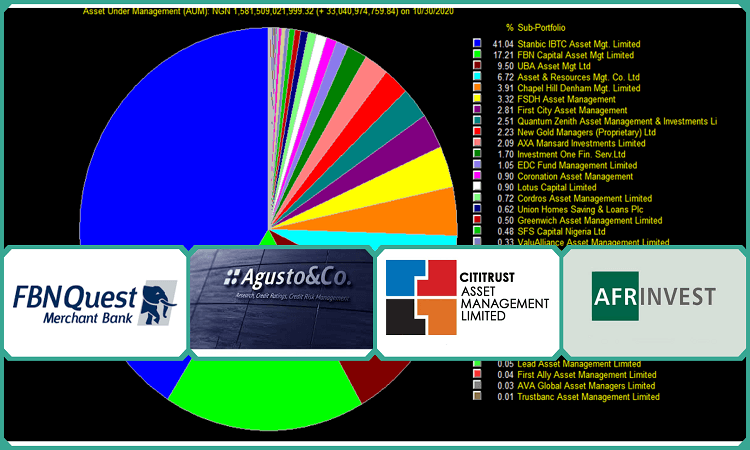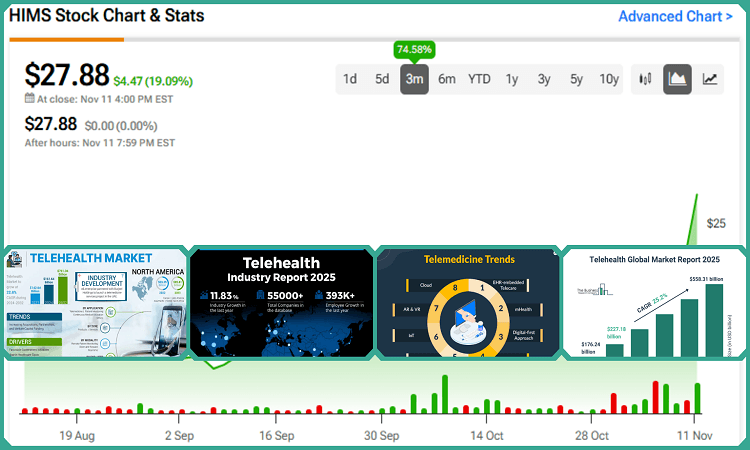Strategies for Financial Freedom: A Guide for Single Parents
Estimated reading time: 9 minutes
Being a single parent is an act of incredible strength and resilience. You’re juggling so many roles, and often, finances are a major source of stress. You want to provide your children with stability, security, and every opportunity to thrive, and you know that financial well-being is a crucial part of that. It’s understandable to feel overwhelmed or unsure where to start. But know that you’re not alone, and financial freedom is absolutely within your grasp.
This guide is designed to be your companion on this journey, offering practical, actionable strategies tailored to the specific needs and challenges of single parents, empowering you to navigate the financial landscape with confidence and build the future you envision for your family.
Understanding Financial Freedom
Financial freedom refers to the state of having sufficient personal wealth to live without having to actively work for necessities. For single parents, this concept encompasses several critical aspects:

- Reduce Financial Stress: Effective money management can significantly reduce anxiety, allowing you to focus on your family and your well-being. Imagine having peace of mind knowing you can handle whatever comes your way.
- Build a Safety Net: An emergency fund is crucial for single parents. It’s your financial cushion against unexpected expenses like car repairs, medical bills, or job loss. Having this safety net provides invaluable peace of mind.
- Invest in Your Family’s Future: Planning for retirement and your children’s education can feel overwhelming, but it’s essential for long-term security. Even small, consistent investments can make a big difference and provide a brighter future for your family.
- Provide with Confidence: Financial stability empowers you to give your children the opportunities and experiences they deserve, without worrying about money. It allows you to focus on their needs and create lasting memories.
Key Strategies for Achieving Financial Freedom
Financial freedom isn’t a dream; it’s a goal you can achieve with the right strategies. These key strategies will guide you on the path to long-term financial security and peace of mind.
Create a Comprehensive Budget
A well-structured budget is the cornerstone of financial independence. Begin by tracking your income and expenses to understand where your money goes each month.
- Track Every Penny: Knowing where your money goes is the first step to financial freedom. Use a budgeting app, a simple spreadsheet, or even a notebook to track all your spending for at least a month. Don’t forget small expenses – they add up!
- Categorize and Prioritize: Once you’ve tracked your spending, categorize it into needs (the essentials: rent/mortgage, utilities, groceries, transportation, childcare, debt payments), wants (things you enjoy but aren’t essential: entertainment, dining out, hobbies), and savings (your future: emergency fund, retirement, children’s education). Prioritize your needs and identify areas where you can cut back.
- Create a Budget That Works for You: The 50/30/20 rule (50% needs, 30% wants, 20% savings) is a helpful guideline, but it’s not set in stone. Single parents often have unique expenses, like childcare, that might require a larger portion of their income. Create a budget that reflects your specific situation and allows you to meet your essential needs and save for your future.
- Stay Flexible and Adaptable: Life throws curveballs, especially at single parents. Regularly review your budget (monthly is ideal) and adjust it as needed. Don’t get discouraged if you have to make changes – flexibility is key to successful budgeting.
Build an Emergency Fund
Life as a single parent can be unpredictable. Medical emergencies, car repairs, job loss – these unexpected events can put a significant strain on your finances. That’s why an emergency fund is crucial. It’s your financial safety net, designed to protect you from falling into debt during tough times.
Aim to save 3-6 months’ worth of essential living expenses. This may seem daunting, but even small, consistent contributions can add up. Start with a manageable amount, like $25 or $50 a week, and celebrate your progress along the way.
Increase Your Income
Exploring opportunities to supplement your income can significantly improve your financial situation. Consider:
- Supplement Your Income with Flexible Work: Many single parents find success and flexibility with side hustles. Consider options like tutoring, pet sitting or dog walking, freelance writing or editing, virtual assistant work, or selling crafts online. Find something you enjoy and that fits your schedule. Even a few extra weekly dollars can add up and ease financial strain.
- Level Up Your Skills for Better Opportunities: Investing in your education and skills is an investment in your future. Explore online courses, workshops, or vocational training programs that can enhance your qualifications and make you more competitive in the job market. This can lead to higher-paying jobs and greater financial stability in the long run.
Take Control of Your Debt
Debt can be a major source of stress for single parents, but it’s not insurmountable. Addressing it strategically is key. Consider these methods:
- Avalanche Method: Focus on paying off the debts with the highest interest rates first. This saves you money in the long run.
- Snowball Method: Pay off the smallest debts first, regardless of interest rate. The quick wins can provide motivation and momentum to tackle larger debts.
- Debt Consolidation: Combine multiple debts into a single loan with a lower interest rate. This can simplify your payments and potentially save you money, but be sure to compare interest rates and any associated fees.
Take Advantage of Tax Benefits
As a single parent, you’re working hard to provide for your family, and every bit of financial support can make a difference. One important area to explore is tax credits.
- Child Tax Credit: The Child Tax Credit can provide significant tax relief, especially for single parents. It’s based on the number of qualifying children you have, and the amount of the credit can vary depending on your income and other factors. Be sure to research the specific requirements to see if you qualify.
- Earned Income Tax Credit (EITC): The EITC is a credit specifically designed to benefit low-to-moderate-income working individuals and families. It can significantly increase your tax refund or reduce the amount you owe. Many single parents qualify for this credit, so it’s worth exploring.
- Maximize Your Tax Benefits with Professional Guidance: The tax code can be complex, and it’s easy to miss out on valuable credits and deductions. Consulting with a qualified tax professional can help you navigate the system, ensure you’re claiming all the benefits you’re eligible for, and potentially save you a significant amount of money.
Plan for a Brighter Future
As a single parent, you’re not just providing for today; you’re building a foundation for tomorrow. Setting clear financial goals is essential for long-term success. Focus on these key areas:
- Children’s Education: A 529 plan or other education savings account can help you save for college and other educational expenses. Start early to maximize the benefits of compounding interest.
- Retirement Savings: Retirement might seem far off, but starting to save early is one of the best things you can do for your future financial security. Explore options like 401(k)s, IRAs, or other retirement accounts. Even small, regular contributions can grow significantly over time.
Current Trends Affecting Single Parents
While there have been positive trends in income levels for single-parent households—with a reported 45% increase in median annual income between 1992 and 2022—the financial landscape remains challenging for many. Rising living costs, particularly in areas like housing, childcare, and healthcare, often outpace income growth, leaving many single parents struggling to make ends meet.
The fact that approximately 72% of single parents rely on a single income source further underscores the importance of effective financial planning and resource management. This reality necessitates a careful approach to budgeting, saving, and investing to secure a stable future.

Real-world Success Stories
Jenni’s story is one of resilience and transformation. As a single mother, she faced the overwhelming challenge of managing medical bills and everyday expenses after her child’s birth. Feeling overwhelmed, she took proactive steps. She learned effective budgeting techniques, diligently built an emergency fund and explored options like debt refinancing to create more manageable payments.
Today, Jenni is in control of her finances. She not only enjoys financial stability but also has the means to provide her child with enriching extracurricular activities. Jenni’s journey is an inspiration and a testament to the power of taking charge of your finances.
FAQs
What’s the very first step to financial freedom?
Take a deep breath! Start by creating a simple budget. Track your income and all your expenses for a month. This will give you a clear, non-judgmental picture of your finances. There are many free and easy-to-use budgeting apps available.
As a single parent, how can I realistically increase my income?
Consider flexible part-time work or freelancing opportunities that fit your schedule and childcare needs. Tutoring, pet sitting, online freelance work, or even selling crafts are all possibilities. Investing in online courses or workshops to upskill can also lead to better job prospects and higher pay.
What are some effective ways to save money, even on a tight budget?
Look for areas where you can cut back on non-essential spending (dining out, entertainment). Use coupons and discounts, buy in bulk when it makes sense, and automate small savings transfers from your checking account to your savings account each month. Every little bit helps!
How much should I realistically aim to save in my emergency fund?
A good goal is 3-6 months’ worth of essential living expenses (rent/mortgage, utilities, groceries, transportation, childcare, debt payments). This will act as a financial cushion if you face unexpected costs like car repairs, medical bills, or job loss. Start small and build gradually.
Are there specific tax benefits available for single parents that I should know about?
Single parents may qualify for valuable tax credits like the Child Tax Credit and the Earned Income Tax Credit (EITC). These credits can significantly reduce your tax liability or even result in a larger refund. Consulting with a tax professional can ensure you’re taking advantage of all the benefits you’re eligible for.
In Conclusion
Achieving financial freedom as a single parent requires dedication, strategic planning, and sometimes seeking external support. By implementing budgeting techniques, increasing income sources, tackling debt head-on, and planning for the future, single parents can create a stable financial foundation for themselves and their children.
Remember that every small step counts toward building a more secure future. With patience and perseverance, you can navigate the challenges of single parenthood while working towards lasting financial independence.
![]()
- Why Amazon Discontinues Chime Video Conferencing Service - February 22, 2025
- How Can Successful Female Entrepreneurs Balance Work-Life? - February 22, 2025
- Top Higher Paying Entry-Level Jobs You Should Know - February 22, 2025



